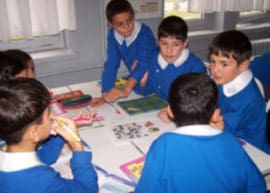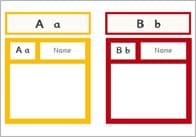The use of group work in primary schools

This is part of a series of posts taken from Dr David Smawfield’s catalogue of resources created to help new teachers, or teachers in training, feel comfortable in their new classes and effectively control their new pupils. Here are some benefits of using group work in primay schools….
– Allowing pupils to work in small groups is, educationally, very sound. It creates opportunities for cooperative learning and the development of cooperative learning skills.
– Group work can create the conditions for active learning.
– Group work can create conditions for pupils to learn from and support each other.
– Group work allows a teacher to cater for individual difference.
– By carefully organising the nature of groups, the teacher can set different students different types of tasks, according to their educational needs.
– Students can be set work that is more closely matched to their:
Ability, Previous knowledge, Pace of working
– Through group activities, students can also be set work that is more closely matched to their interests. Organising group work can give pupils a greater choice: they can elect for the kind of activity they would like to pursue.
– Group membership/organisation can be used as a behaviour management technique.
– The use of occasional group activity creates variety, and helps to maintain freshness and student interest.
Dr Smawfield is a senior international development consultant based in the UK and has a strong background in teacher education. He has worked in countries around the world, including Bangladesh, Malawi, Romania and Vietnam and is especially interested in active learning and low-cost teaching aids. You can find out more about his work on his website.
Comments
Leave a Reply
Popular Teaching Resources
Stay Up To Date
Sign up for our newsletter and we’ll let you know when we create new early years resources.






hi, im making a reference, what year was this made?
Hi Lina, it was published in 2013